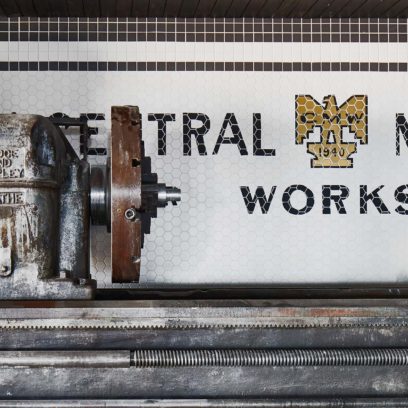Supporting PortsToronto’s Climate Risk & Emissions Strategy

How Scope 3 emissions data and scenario analysis is being used to inform long-term planning.
PortsToronto is an infrastructure operator reimagining transportation in the Greater Toronto area. The organization owns and operates the Port of Toronto, the Outer Harbour Marina, and Billy Bishop Toronto City Airport. As a central player in Toronto’s transportation and economic infrastructure, commited to fostering strong, healthy, and sustainable communities, the organization sought to better understand its environmental footprint and assess how climate change could affect its operations. For PortsToronto, decarbonization is a priority not only because of their proximity to waterfront communities, but also due to the integral role transportation plays in supporting businesses and the local and national economy.
To support this aspiration, PortsToronto partnered with CarbonBetter, a boutique sustainability and decarbonization-focused consulting firm specializing in the Ports and Maritime sector. CarbonBetter helped estimate PortsToronto’s Scope 3 emissions, focusing on the categories most relevant to its footprint. Using the emissions data and the broader operational footprint as input, we conducted a scenario-based analysis of climate risks and opportunities most relevant for PortsToronto, thereby informing long-term risk management and enabling business resilience. Together, these efforts delivered actionable insights to develop a long-term decarbonization plan to meet PortsToronto’s 2050 net-zero goal. This blog post provides a closer look at CarbonBetter’s work with PortsToronto and the steps we took to support their sustainability efforts.
Summary Overview
| Client | PortsToronto – Toronto, Canada |
| Industry | Transportation & Infrastructure |
| Scope of Operations | Port of Toronto, Outer Harbour Marina, Billy Bishop Toronto City Airport |
| Project Duration | Nov. 2024 – March 2025 |
| Objective | Estimate the emissions footprint across relevant Scope 3 categories (including both activity-based and spend-based methods, as applicable) Evaluate climate-related risks and opportunities across all operations to inform a roadmap to achieve net-zero emissions by 2050 |
| Services Provided | Emissions footprint estimation focused on Scope 3 Emissions reduction recommendations TCFD-Aligned Climate Risk Assessment, which includes: – Risk & Opportunity Mapping – Climate Scenario Analysis (CSA) and risk impact assessment – Recommendations to mitigate identified risks |
| Methodology | Performed peer analysis to identify relevant Scope 3 categories to be included in the estimation Developed easy-to-use data-gathering templates that PortsToronto can continue to use for future estimations Gathered data and estimated emissions footprint for relevant Scope 3 categories Identified emissions hotspots and provided emissions reduction recommendations Developed a comprehensive list of potential physical and transitional risks applicable to PortsToronto, given its business footprint Evaluated risks and identified the most relevant ones for PortsToronto Aligned on IPCC scenarios (IPCC RCP8.5 and RCP2.6) to act as “bookends” for scenario analysis Conducted a robust qualitative and quantitative assessment of relevant risks for the selected climate scenarios Identified the impact of the risks in the short, medium, and long term for the two climate scenarios Developed recommendations to mitigate relevant risks over time |
| Key Outcomes | Comprehensive Scope 3 emissions profile Easy-to-use templates for data gathering and scope 3 footprint estimation Holistic understanding of climate-related risks across all business units Insights to inform short- and long-term decarbonization planning Foundation laid for a strategic net-zero roadmap |
| Project Team | Pankaj Tanwar, Team Lead Johanna Sörbom, Manager Sathya Narayanan, Consultant Sayali Chaudhari, Consultant Laura Salazar, Consultant |
Gaining a Complete Picture of Emissions and Climate Risk
PortsToronto needed a clear view of its value chain emissions (Scope 3) and a structured understanding of climate-related risks across the port, marina, and airport. Rather than analyze these business units in isolation, we took an integrated approach, recognizing the shared emissions sources and risk factors. The goal was to deliver both a detailed Scope 3 inventory and a scenario-based assessment of physical risks (e.g., sea level rise, extreme weather) and transition risks (e.g., policy shifts, carbon pricing, changing market expectations), mapped across operations and aligned with PortsToronto’s long-term climate goals. Our analysis needed to provide insights specific to each business unit, while also supporting decision-making at the enterprise level.
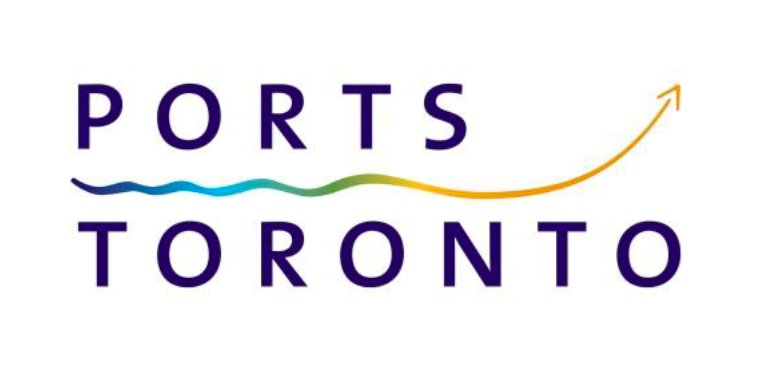
“The CarbonBetter team has been exceptional, and the impact they’ve delivered for PortsToronto has been truly meaningful. Their assessment was both comprehensive and rigorous—transforming abstract climate concerns into clear, actionable insights. That clarity has sharpened our internal conversations and significantly strengthened the case for investing in both mitigation and adaptation strategies.”
Juhi Matta, Senior Manager – ESG, PortsToronto
Our Approach
Scope 3 Emissions Inventory
We started by helping PortsToronto estimate their Scope 3 emissions. Peer benchmarking was done to identify Scope 3 categories most relevant to PortsToronto, given their business footprint. Using data supplied by the client, we estimated emissions for the most relevant categories, applying both activity-based and spend-based methodologies. The final inventory included a clear breakdown of emissions sources, documentation of calculation methods, and user-friendly tools and templates to support ongoing updates. This inventory established a data-backed emissions baseline—a critical foundation for setting reduction targets and identifying where the organization’s indirect emissions are concentrated.
Climate Scenario Analysis (CSA)
With a baseline in place, we conducted a Climate Risk and Scenario Analysis (CSA) to assess how climate risks could affect operations in the future. Following the recommendations of the Task Force on Climate-related Financial Disclosures (TCFD), we analyzed both physical risks and transition risks. The analysis was based on two widely recognized scenarios: a business-as-usual pathway (IPCC RCP8.5) and a Paris-aligned pathway (IPCC RCP2.6). Our team mapped the risks and opportunities across all of PortsToronto’s business units to capture both business-specific and organization-wide impacts. Then, we performed a robust assessment for both physical and transitional risks across the short, medium, and long term. A quantitative assessment was also conducted for the most relevant risks, providing detailed financial implications in the short, medium, and long term.
As an operator of multiple transportation hubs, identifying transition risks proved just as important as identifying physical risks for PortsToronto. While people often think first of damages to infrastructure and operational disruptions when considering climate risks, the scenario analysis helped PortsToronto understand and quantify the potential impacts of changing market regulations, evolving customer preferences, cost of greenhouse gas (GHG) emissions, and other impacts that go beyond just the physical. The results of this work gave PortsToronto a clear picture of how different climate futures could affect its operations—helping the team to plan ahead and laying the foundation for developing a robust decarbonization roadmap.
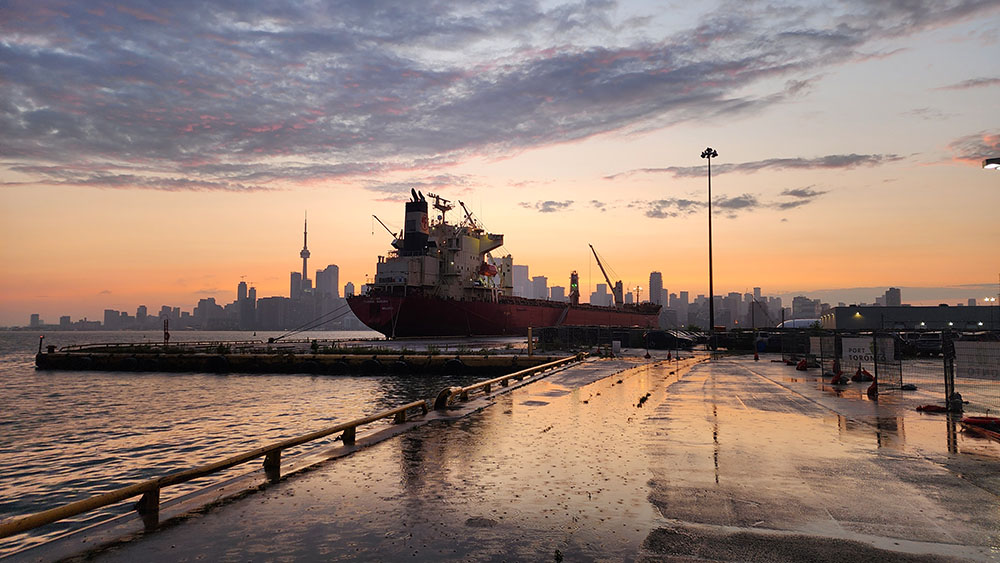
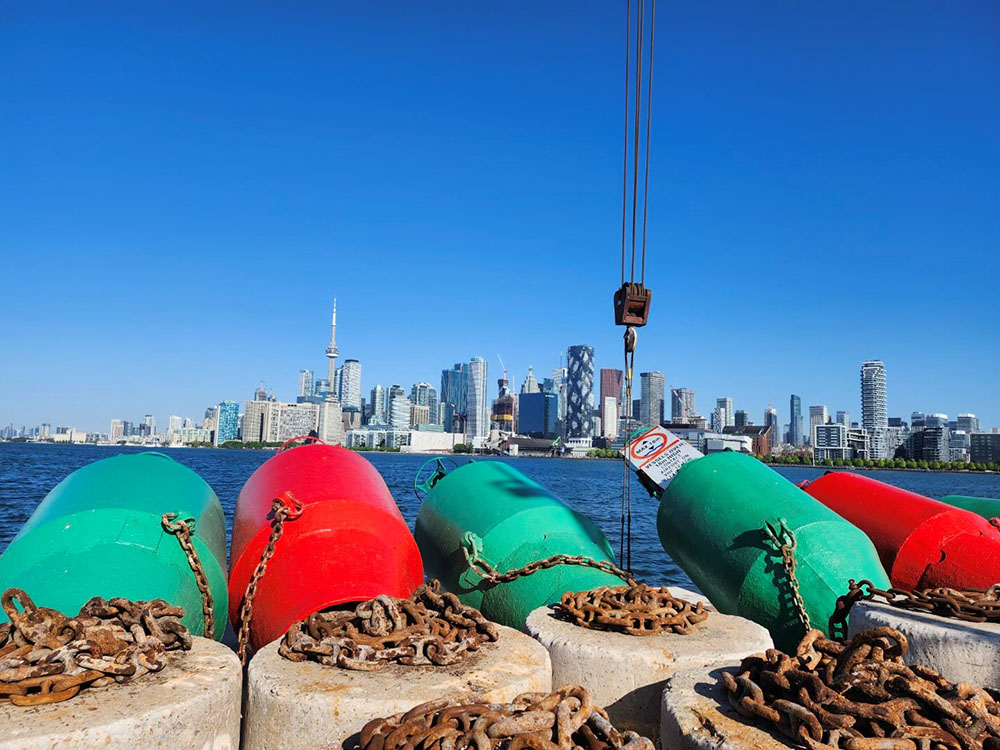
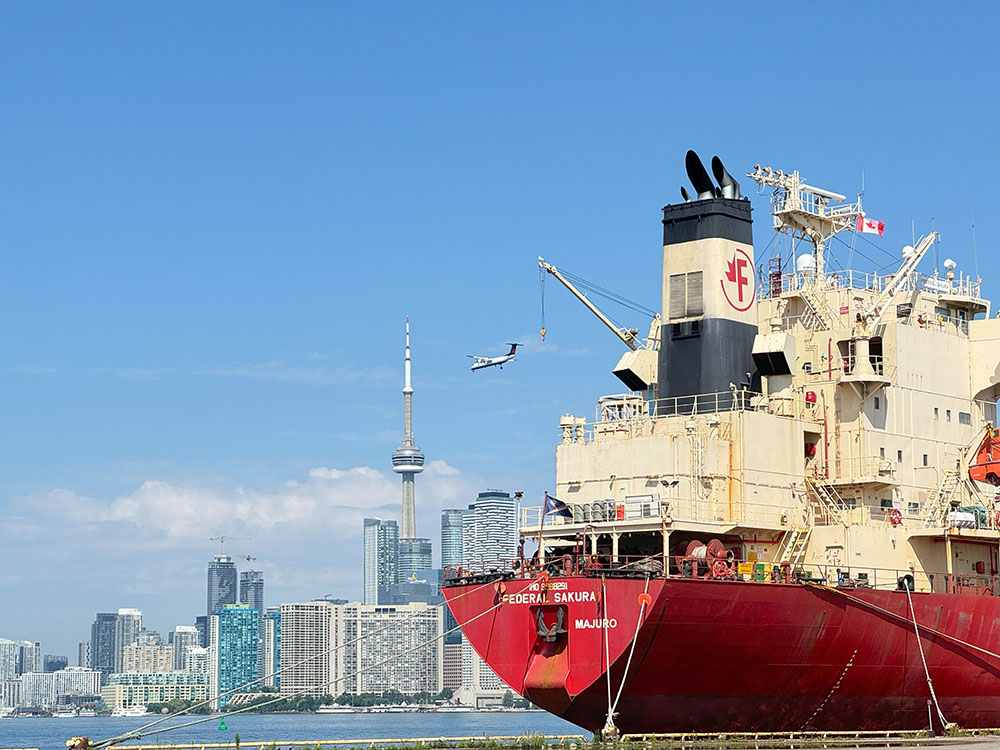


Photo credits: PortsToronto

“A robust climate risk assessment is not only helpful with compliance with relevant laws and frameworks but also a critical input in ensuring long-term business resilience, especially for the ports and maritime sector, whose assets are significantly more vulnerable to climate-related impacts.”
Pankaj Tanwar, Director of Climate Services, CarbonBetter
Results & Impact
As a result of partnering with CarbonBetter, PortsToronto received a detailed Scope 3 emissions baseline that identifies its most significant sources of indirect emissions, along with tools and templates to help maintain and update emissions estimates over time. PortsToronto has since been able to perform these estimations internally. In addition, the CSA provided a clear view of potential risks—both physical and transition—across all areas of operation.
The quantified financial implications of climate risks turned abstract risks into concrete costs for PortsToronto—covering everything from infrastructure damage and insurance increases to heating and cooling expenses and worker safety impacts—the analysis made the case for climate action clearer and more urgent.
Together, the emissions inventory and risk assessment give PortsToronto the data-driven foundation it needs to prioritize near-term actions and guide long-term planning, laying the groundwork for building a practical roadmap toward net-zero by 2050.
Conclusion
Our work with PortsToronto demonstrates how Scope 3 emissions estimation and climate risk scenario analysis complement each other in building a strong foundation for sustainability planning. By first developing an accurate inventory of indirect emissions and then using that data to assess risk exposure under multiple climate scenarios, we have enabled PortsToronto to make informed, data-driven decisions. With these insights in hand, PortsToronto is well-positioned to advance its decarbonization efforts and build a roadmap toward its 2050 net-zero goal.
CarbonBetter supports organizations in building data-driven net-zero strategies through emissions inventories and climate risk assessments. If your organization wants to understand its Scope 3 emissions better or evaluate climate-related risks, we can help. If your organization wants to understand its Scope 3 emissions better or evaluate climate-related risks, we can help. Contact us today to get started.

Sathya Narayanan
Project Consultant

Sayali Chaudhari
Project Consultant

Laura Salazar
Project Consultant
About CarbonBetter
Founded in 2012, CarbonBetter partners with organizations across various industries to implement sustainability, decarbonization, and net-zero strategies. Our firm combines expertise in carbon markets with a deep understanding of energy logistics to align environmental and business goals.
About PortsToronto
For more than 100 years, PortsToronto has worked with its partners at the federal, provincial and municipal levels to enhance the economic growth of the City of Toronto and the Greater Toronto Area. PortsToronto owns and operates Billy Bishop Toronto City Airport, which welcomes more than two million passengers each year; the Outer Harbour Marina, one of Canada's largest freshwater marinas; and the marine Port of Toronto that includes businesses in a variety of sectors including marine shipping, cargo services, media production and passenger cruises. PortsToronto is committed to fostering strong, healthy and sustainable communities and has invested more than $30 million since 2009 in charitable initiatives and environmental programs that benefit communities along Toronto's waterfront and beyond. PortsToronto operates in accordance with the Canada Marine Act and is guided by a board with representation from all three levels of government. Visit www.portstoronto.com.
We start by identifying the most relevant Scope 3 categories based on your operations, industry, and goals. Then, we calculate emissions using trusted data sources and clearly document all assumptions. For each client, we tailor the approach to fit available data and internal capacity, and we provide templates to make future updates easier.
Scenario analysis helps organizations explore how different climate futures—such as a high-emissions trajectory or a Paris-aligned pathway—could impact operations. We assess both physical risks (like extreme weather and sea level rise) and transition risks (such as evolving regulations or market shifts), translating them into actionable insights. This analysis supports long-term resilience planning and often helps justify investments in adaptation and mitigation.
Yes. We specialize in working with organizations that manage complex or multi-site operations. Rather than analyzing each facility in isolation, we take a system-level view to identify cross-cutting risks and emissions drivers while still capturing business-specific impacts. This ensures your planning reflects both enterprise-wide and site-level realities.
We aim to make the process as efficient and collaborative as possible. We’ll guide your team through data needs and review sessions, but we handle the technical modeling, documentation, and reporting. Most clients engage through a few key touchpoints—kickoff, data sharing, review sessions, and final presentations—while we manage the heavy lift behind the scenes.
A clear emissions baseline and risk assessment provide the foundation for a credible decarbonization roadmap. They help identify where to focus reduction efforts, what risks need to be mitigated, and how to prioritize actions over time. The insights can also support goal-setting, stakeholder engagement, and climate-related disclosures aligned with frameworks like TCFD.
Ready to go carbon-negative?
At CarbonBetter, we believe in progress over perfection. It’s not about doing everything—it’s about doing something. With over a decade of experience in the energy industry, we partner with organizations to guide them in the transition to a net-zero economy. CarbonBetter’s sustainability specialists work closely with partners across all industries to integrate sustainability solutions seamlessly into any business.
CarbonBetter helps organizations of all sizes measure, reduce, report, and offset their emissions, and tell stories about their sustainability journey.
Telling stories about sustainability efforts helps other organizations take action that will then, in turn, inspire others—it's never too early or late to start.




